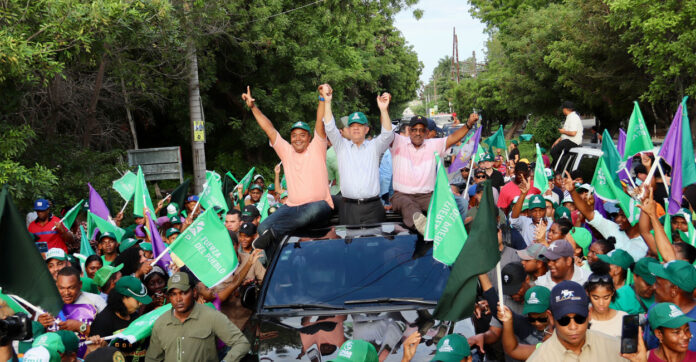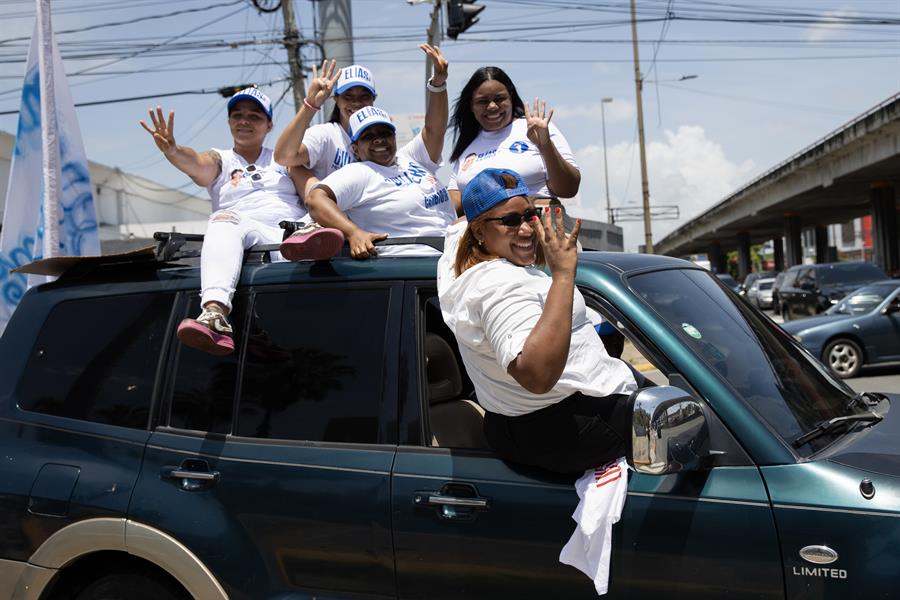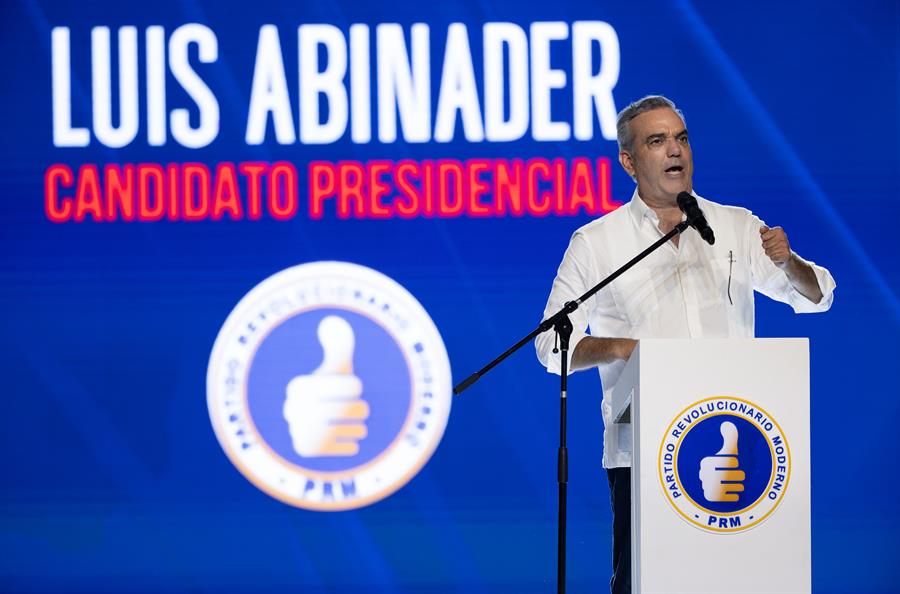
Dominicans are at a pivotal juncture in an electoral showdown that could reshape the nation’s trajectory. Among the nine contenders vying for the ballots, three main candidates stand out, each representing distinct visions that could profoundly influence the course of the Caribbean nation.
Leading the charge is Luis Abinader, eyeing a second term, commanding the polls with 64.8% of the vote intention. The incumbent president, running under the banner of the Modern Revolutionary Party (PRM), has consistently urged citizens to exercise their voting rights and has voiced optimism regarding the outcome. Trailing behind, albeit by a significant margin, is former president Leonel Fernández, carrying the torch for the Fuerza del Pueblo party. Occupying a distant third spot is Abel Martínez, erstwhile mayor of Santiago, the nation’s second most significant city, aspiring for the Dominican Liberation Party (PLD) to regain power.
While forecasts paint a picture of victory for Abinader, positioning him strongly for a second term, the specter of a runoff looms if no candidate secures over 50% of the votes, with the decisive showdown slated for June 30th.
SIGNIFICANT CHALLENGES
The Dominican Republic’s electoral contest has been marked by several crucial issues for society, including the migration challenges posed by the crisis in Haiti, which has generated a significant influx of migrants into the Dominican Republic. This phenomenon has been a recurring theme in the campaign, addressed by each candidate from their own perspective.
Luis Abinader has advocated for a policy of secure and orderly borders and has emphasized the need for regional cooperation to address the crisis in Haiti. Leonel Fernández has proposed a policy of integration and solidarity and has even argued that the Dominican Republic has a moral and humanitarian responsibility towards Haitian migrants.
Abel Martínez has focused his proposal on strengthening Dominican institutions to effectively manage the migratory flow, through measures such as improving migrant care services and implementing integration policies. According to government data, the number of Haitians living in the national territory is around half a million.
In addition, despite being a leading economy in the region, Dominican society faces deep inequalities. According to the World Bank, a growth of 5.1% of the local economy is expected for 2024, driven by the lagged effects of monetary policy easing and increased public investment.

A HISTORIC DEBATE
In a new development for these elections, a historic debate among the leading presidential contenders took place on April 24. Abinader attended this groundbreaking event, marking him as the first presidential candidate to do so. Meanwhile, opposition candidate Leonel Fernández labeled the occasion as a «battle between democracy and moneycracy.»
At the heart of the debate was the pressing issue of citizen security. Abel Martínez directed a pointed question to Luis Abinader regarding the implementation of the «Giuliani Plan.» Abinader asserted that his policies had succeeded in «lowering the homicide rate per 100,000 inhabitants.» However, Leonel Fernández countered this claim, alleging it to be a product of «statistical manipulation.»
Tax reform emerged as another pivotal topic. Throughout the discussion, candidates debated whether trimming government spending should precede the implementation of reform. Such deliberations are poised to sway voter sentiments in the imminent general elections.
The televised debate wasn’t just a platform for candidates to throw around ideas; it was a window into the charged political climate leading up to the election. Despite the candidates’ clear disagreements and attempts to undermine each other, a glimmer of unity emerged: a shared concern for addressing the issue of undocumented immigrant deportations. This marked a rare moment of consensus in Dominican politics.
LUIS ABINADER: FOCUS ON THE ECONOMY
Part of Luis Abinader’s campaign has revolved around the economy. His victory could signal a continuation of current economic policies, which have emphasized investment in infrastructure and job creation. However, he may also face challenges in terms of social equity and sustainable development.
Key points of his proposals include: eliminating about nine public entities to ensure efficiency in the use of state resources; establishing new ministries to address emerging societal demands; increasing electricity generation; maintaining macroeconomic stability for industrial sectors; creating over 600,000 jobs; empowering Dominican women; tackling informality in the labor market; and establishing an agency to reduce public transportation costs and traffic in cities.

LEONEL FERNÁNDEZ: EXPERIENCE AND STABILITY
Former President Leonel Fernández presents himself as the candidate with the most experience, offering stability. His victory could herald a return to the policies of his previous administration, which focused on economic stability and investment in education. However, he may also face criticism for his handling of corruption and the lack of political reforms.
Among his proposals are: strengthening the rule of law by establishing efficient and timely mechanisms for transparency and accountability; fostering transparency through the implementation of clear indicators and rigorous methods; promoting the professionalization of the public service; implementing interactive digital platforms; encouraging citizen participation through public consultations; fostering collaboration with non-governmental organizations; prioritizing economic growth to generate more and higher-quality jobs; ensuring a more equitable distribution of wealth; improving food distribution chains; and lowering prices.
ABEL MARTÍNEZ: THE FRESH FACE
Abel Martínez embodies the new face and fresh ideas. His victory could usher in a renewed focus on local governance and citizen engagement. However, he may also encounter challenges in terms of experience and capability to handle the national economy.
The former mayor of Santiago proposes: bolstering police response in sensitive areas through three security rings; installing surveillance cameras to strengthen the 9-1-1 System; illuminating 50% of streets with 100 thousand LED bulbs in a first stage; securing the border with a real-time surveillance system; constructing the first maximum-security prison; implementing the «Seed Capital» plan, offering incentives of up to 300 thousand pesos to high school graduates to use for their university studies; building 15 higher education institutes; launching the «Zero Debt» program to erase Dominicans’ debts with banking institutions; and establishing childcare centers, along with more centers for the National Council for Childhood and Adolescence (Conani).
On May 19th, Dominicans will head to the polls to choose the next president of the country, as well as to elect deputies and senators. These elections mark the second round of voting this year, following the municipal elections held in February, where the ruling party won the majority of mayoralties. As the election date approaches, voters face the crucial task of reflecting on the direction they desire for the future of their nation.






